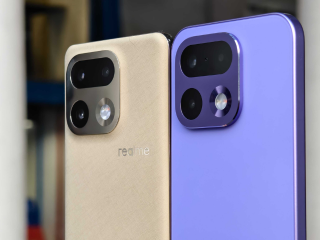- Home
- Apps
- Apps Features
- In Rare Showing, Google Arrives at CES to Battle Alexa and Siri
In Rare Showing, Google Arrives at CES to Battle Alexa and Siri

More than 3,900 companies are on hand to show off their latest technologies at CES 2018 this week, but there's one giant name that stands out from the pack: Google.
This is the first time in several years that the Mountain View, California, titan has had a big, stand-alone booth at the show and its presence not only reflects the changing dynamic of the show, but also serves as a declaration of war on the battlefield of digital assistants.
CES is changing from a show where you show up with the flashiest gadget. Now there's a greater focus on creating partnerships between small and large companies to make each product work within constellation of others to help people get through the day more efficiently, said Gary Shapiro, chief executive of the Consumer Technology Association, which hosts CES. Tech giants want their assistants to be the glue of that life operating system - the voice that helps you turn on your lights, power your car's dashboard and control everything from your shower head to your bed.
Having an official booth at CES, especially when its chief rival Amazon doesn't, lets Google show off to potential buyers and signal that it's ready to work with the world's top brands and interesting start-ups, analysts said.
"Google's presence at CES is equally designed to reach not only consumers but also developer ecosystems as well," said Werner Goertz, analyst at Forrester Research.
(Amazon chief executive Jeffrey P. Bezos is the owner of The Washington Post.)
The competition to be the first assistant to get into people's homes is fierce. It's a market that's expected to grow considerably within the next few years, with the analysis firm Gartner predicting that a quarter of all household requests will be made through voice assistants by 2019. Currently, Amazon's Echo devices have 67 percent of the smart speaker market, to Google's 25 percent, according to Strategy Analytics. And both Google and Amazon offered drastic holiday price cuts to get ahead of Apple's HomePod. That speaker, expected later this year, will give Apple's Siri voice assistant its own perch in the home - though the company's HomeKit software already lets Siri control lightbulbs, smart locks and other products, including some exhibiting at the show.
Google's goal is to be the only assistant a person uses every day. "You should have the same assistant helping you across all the contexts of your life," said Scott Huffman, vice president for Google Assistant. Google Assistant is currently in 400 million devices worldwide, up from 100 million in July 2017.
Google has some key advantages over Amazon when it comes to AI, analysts said. Its deep knowledge of search gives it important background knowledge of what people want to know and, critically, how they make requests. Google's services give it a built-in audience. Most importantly, because Google Assistant is built into the mobile Android operating system, it isn't as housebound as Alexa.
"There are certain spaces open to challengers such as Google and maybe even the other guys," Goertz said.
But it will be hard-fought battle. CES will provide a huge showcase for this battle as it plays out. Last year, Amazon didn't have an official presence at the show, but its Alexa assistant showed up in everything from speakers to ceiling fans. That's expected to be the case this year too. Analysts expect Google Assistant to have a similar showing, in products ranging from kitchen appliances to autos, which will extend Google's reach far beyond its own booth.
And Google and Amazon assistants will have other players at CES snapping at their heels, such as Roku. The video streaming service has announced that it has developed its own voice assistant, which is custom-built to work with its service. Say, for example, "Hey Roku, find Meryl Streep movies" into a remote control or compatible speaker, and it will pull up a list on the TV.
Why put in the time and money to take on the titans here? "There are companies like Google and Amazon that are creating general-purpose assistants. But we feel over time these sorts of assistants will specialize," says Mark Ely, Roku's vice president of product management. "Our focus is entertainment, and we believe we can make a demonstrably better experience for customers."
Not every home device maker is declaring war or even picking sides in the war. They'll be playing Switzerland in the voice fight by showing off several different systems - so its customers don't feel boxed in. Sonos, for example, recently launched a speaker that prominently features Alexa in its advertising. But it's also confirmed that it will bring Google Assistant to the same speaker this year
LG said that its 2018 TVs contain artificial intelligence capabilities (dubbed ThinQ) that allow customers to command TV functions by speaking into the remote control. Basic TV control functions will be completed by LG's own software, but when customers ask broader questions, it switches to Google's Assistant for answers. People who own Alexa devices will also be able control certain LG TV commands by calling out to Amazon's voice assistant.
LG is trying to take an "agnostic approach," said Tim Alessi, a vice president of marketing at LG. "We want to take the opposite approach" of other TV makers focused on just one system, Alessi said. "We want to cast the widest net," he said. When asked if that included letting Siri command its TVs, Alessi said, "Nothing is off the table."
Samsung is still working hard on Bixby, its voice assistant, and is expected to showcase its AI at the show. So is Chinese tech firm Baidu.
So where does that leave Google's quest to be the one and only? If CES is any indication, the dream of a unified system is a ways off. The giants have taken an early lead, but the breadth of their ambition means that they'll need to work with other companies - such as Roku and LG - to make specialized voice commands work. As the field shakes out, consumers will have many choices of which assistant they want and which fits their needs the best.
Like many wars, it's going to be messy for a while, analysts said.
"When you look at these assistants, they operate well in their own universe but they don't do interstellar travel well," said Frank Gillette, of Forrester Research. Until that problem gets worked out, he said, "that's going to drive us all nuts for the next five years."
© The Washington Post 2018
Catch the latest from the Consumer Electronics Show on Gadgets 360, at our CES 2026 hub.
Related Stories
- Samsung Galaxy Unpacked 2025
- ChatGPT
- Redmi Note 14 Pro+
- iPhone 16
- Apple Vision Pro
- Oneplus 12
- OnePlus Nord CE 3 Lite 5G
- iPhone 13
- Xiaomi 14 Pro
- Oppo Find N3
- Tecno Spark Go (2023)
- Realme V30
- Best Phones Under 25000
- Samsung Galaxy S24 Series
- Cryptocurrency
- iQoo 12
- Samsung Galaxy S24 Ultra
- Giottus
- Samsung Galaxy Z Flip 5
- Apple 'Scary Fast'
- Housefull 5
- GoPro Hero 12 Black Review
- Invincible Season 2
- JioGlass
- HD Ready TV
- Laptop Under 50000
- Smartwatch Under 10000
- Latest Mobile Phones
- Compare Phones
- iQOO Z11 Turbo
- OPPO A6c
- Samsung Galaxy A07 5G
- Vivo Y500i
- OnePlus Turbo 6V
- OnePlus Turbo 6
- Itel Zeno 20 Max
- OPPO Reno 15 Pro Mini 5G
- Lenovo Yoga Slim 7x (2025)
- Lenovo Yoga Slim 7a
- Realme Pad 3
- OPPO Pad Air 5
- Garmin Quatix 8 Pro
- NoiseFit Pro 6R
- Haier H5E Series
- Acerpure Nitro Z Series 100-inch QLED TV
- Asus ROG Ally
- Nintendo Switch Lite
- Haier 1.6 Ton 5 Star Inverter Split AC (HSU19G-MZAID5BN-INV)
- Haier 1.6 Ton 5 Star Inverter Split AC (HSU19G-MZAIM5BN-INV)

















